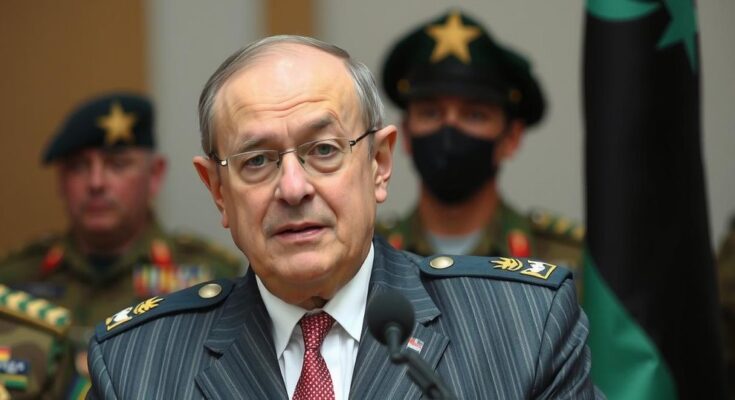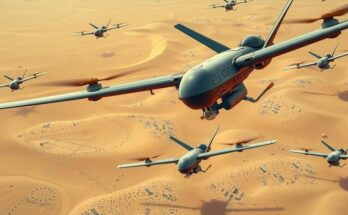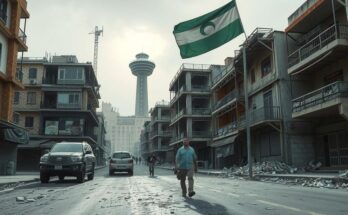Libyan Prime Minister Abdul Hamid Dabaiba has opposed Russia’s attempt to enhance its military presence in eastern Libya, expressing concerns about the country becoming a conflict zone for international powers. Dabaiba’s government aims to prevent Russian weapon transfers amid increasing U.S. economic pressures regarding corruption. Libya’s division, influenced by the withdrawal of support for the Assad regime, complicates the geopolitical landscape as Russia seeks to maintain its influence in the region.
Following Russia’s initiative to bolster its military presence in eastern Libya, the UN-backed Libyan Prime Minister, Abdul Hamid Dabaiba, has firmly opposed this development. He articulated his concerns regarding Libya becoming a battleground for international disputes, stating, “We have concerns about moving international conflicts to Libya, and that it will become a battlefield between countries.” His remarks reflect a broader issue of contention within Libya, which remains divided between a rival government in the east, backed by Khalifa Haftar, and Dabaiba’s Tripoli-based administration.
Recent reports suggest that Russian forces have been relocating military equipment from bases in Syria to Libya, supporting the eastern administration. Dabaiba has refused to permit the introduction of Russian arms, warning that such actions would exacerbate Libya’s existing turmoil. “No one with an ounce of patriotism wants a foreign power to impose its hegemony and authority on the country and the people,” he stated. Dabaiba has also reached out to the Russian ambassador to seek clarification regarding these military movements.
The situation in Libya is further complicated by economic pressures from the United States, which are now being exerted on Libyan leaders due to corruption issues. A recent communication from the Federal Reserve Bank has indicated a suspension of dollar exchange transactions unless a specialized auditor is appointed to oversee these operations. Analysts suggest that this audit may shed light on illicit activities, including oil smuggling operations linked to Russia.
The geopolitical dynamics in Libya have shifted significantly following the fall of the Assad regime, prompting increased Russian activity in the region. The environment for Russian operations in Syria has grown more precarious, prompting reassessment of its strategic assets in Libya. As the situation evolves, the interplay between local governance, foreign influence, and economic stability will continue to shape Libya’s future.
Since the ousting of Muammar Gaddafi in 2011, Libya has been engulfed by conflict and division, primarily split between the internationally recognized government in Tripoli and a rival authority in the east. Russia has historically provided military backing to Haftar’s eastern government, while the UN and NATO support Dabaiba’s efforts to unify the country. The recent geopolitical changes following Assad’s regime collapse have further influenced Russia’s military strategy in Libya, as they seek to navigate the emerging challenges and opportunities in North Africa and the Mediterranean.
In summary, the Libyan Prime Minister’s rejection of Russian military reinforcement efforts highlights the ongoing strife and complexity of the country’s political landscape. The potential for Libya to become a theater for international conflict remains a pressing concern, while external pressures from the United States further complicate the situation. As the balance of power continues to shift, monitoring these dynamics will be essential for understanding Libya’s path forward.
Original Source: www.theguardian.com




